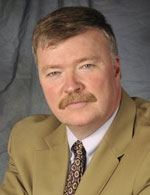
John J. Farmer, Jr.
NJ Attorney General on 9/11
Senior Counsel for the 9/11 Commission
Federal Prosecutor
Dean Rutgers Law School
Author
Lead researcher on Rutgers Violence and Terrorism Project including time in Paris, London and Brussels
Will be speaking at the 200 Club Luncheon on the following topic: “Fifteen years since 9/11/01; a perspective on terrorism in today’s world”
Bio: https://law.newark.rutgers.edu/faculty/faculty-profiles/john-j-farmer-jr
Excerpt of Prepared Testimony by John J. Farmer, Jr.
Rutgers University Professor of Law
Commission on Security and Cooperation in Europe
U.S. Helsinki Commission
Tuesday, April 19, 2016
I am currently a University Professor of Law at Rutgers University. Prior to my current position, I served as Rutgers University Counsel, as Dean of Rutgers School of Law—Newark, as a partner in two law firms, as Senior Counsel to the 9/11 Commission, as New Jersey’s Attorney General, as Chief Counsel to Governor Whitman, and as a federal prosecutor.
Of most relevance to today’s hearing, I was the chief law enforcement officer in New Jersey on 9/11, a day when our state lost some 700 of its citizens. I can never forget that day, or the sense of failure and disbelief I felt that such an attack could have succeeded. Understanding exactly what went wrong and how public safety can be protected during a terrorist attack or other crisis has been a focus of my work in the years since.
As Senior Counsel for the 9/11 Commission, I had the opportunity to study the crisis as it was experienced in real time by everyone from the President to the evacuating civilians in New York’s Twin Towers. I wrote a book, The Ground Truth, comparing the response on 9/11 to the response to Hurricane Katrina, and found disturbing parallels between the way the government reacted to a complete surprise attack and the way it reacted to a storm that had been anticipated for years and for which detailed plans were in place.
The responses to both events, I found, failed to take account of the fact that, as stated in The 9/11 Commission Report, “[t]he `first’ first responders on 9/11, as in most catastrophes, were private-sector civilians. … [P]rivate-sector civilians are likely to be the first responders in any future catastrophes.” The 9/11 Commission Report, at 317.
That truth of that observation has been borne out in subsequent attacks ranging from the London subway bombing to the murders at the Jewish museum in Brussels to the murders at the kosher grocery store in Paris to the most recent attacks at the Paris cafes, stadium, and concert hall and at the Brussels airport. As the threat has become more diffuse, and the attacks less predictable, I believe the following conclusion has become inescapable: Anticipating and preventing attacks on European Jewish communities – or, for that matter, on any vulnerable communities — will be impossible without a dramatically greater engagement of law enforcement with the affected communities and people, and of the affected communities and people with each other.
For the past nearly two years, I have had the privilege of leading, along with Rutgers Professor of Criminal Justice John Cohen, formerly Counterterrorism Coordinator for the Department of Homeland Security, an initiative at Rutgers University designed to identify the best ways to protect vulnerable communities in light of the evolving threat. Funded generously by Rutgers alumnus Paul Miller, former general counsel of Pfizer, and his family, Rutgers began what we have called the Faith-based Communities Security Program two years ago by taking a close look at the evolving threat, and by taking an equally close look at the security situations of several European Jewish communities. To assist us, we have had the privilege of working with subject matter experts like Paul Goldenberg, Rabbi Baker, Sean Griffin, recently retired as Counterterrorism Coordinator for Europol, and Richard Benson, who helped establish the Community Security Trust in Great Britain. …
… We are committed to providing the education, information, and training that will enable the Jewish and the vulnerable communities of other cultures and beliefs, wherever they are threatened and whenever they ask, not just to survive but to flourish. The stakes for the Jewish and other vulnerable communities today cannot be higher; if done right, however, the rewards from these efforts will be reflected in a safer and more peaceful future for all.
